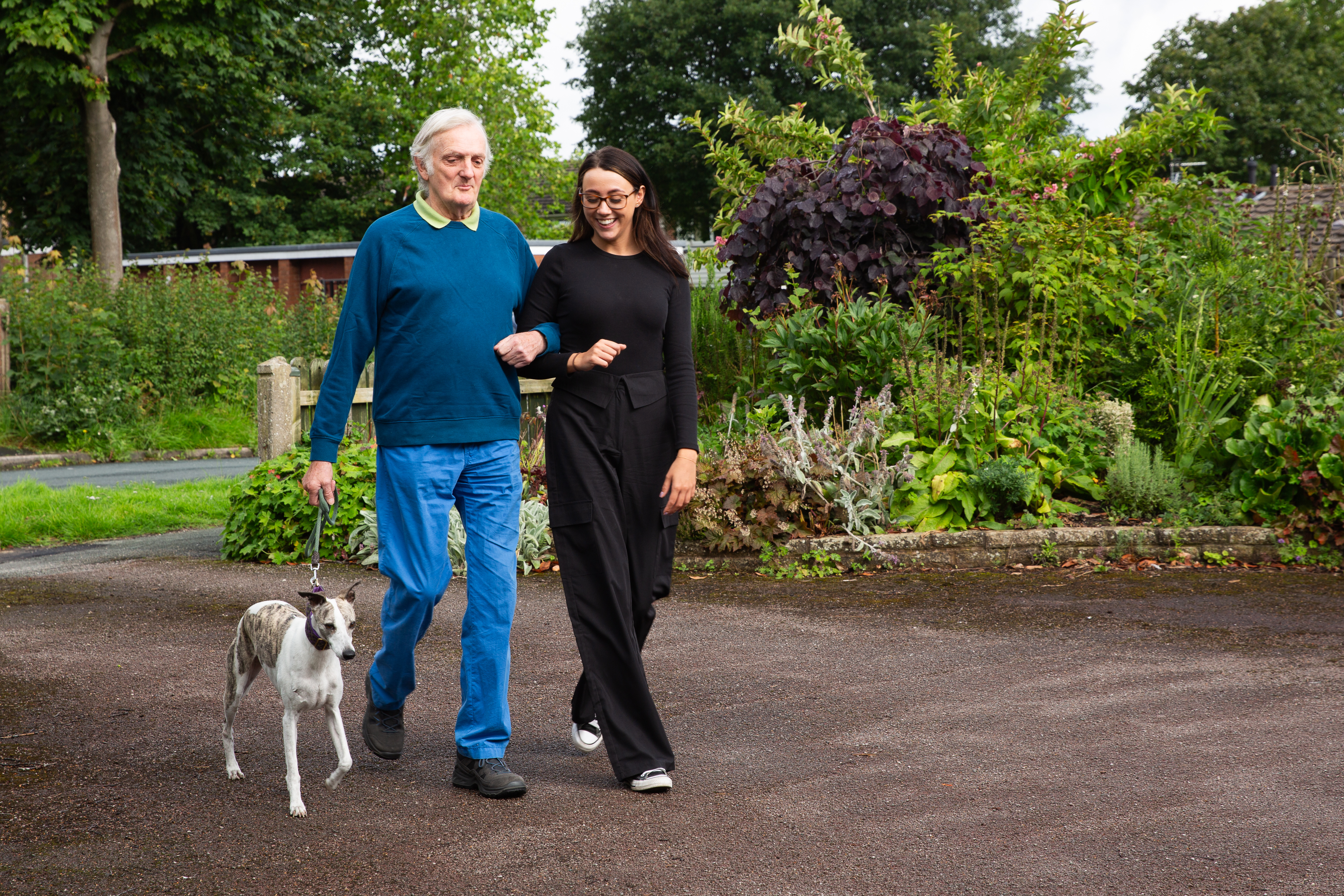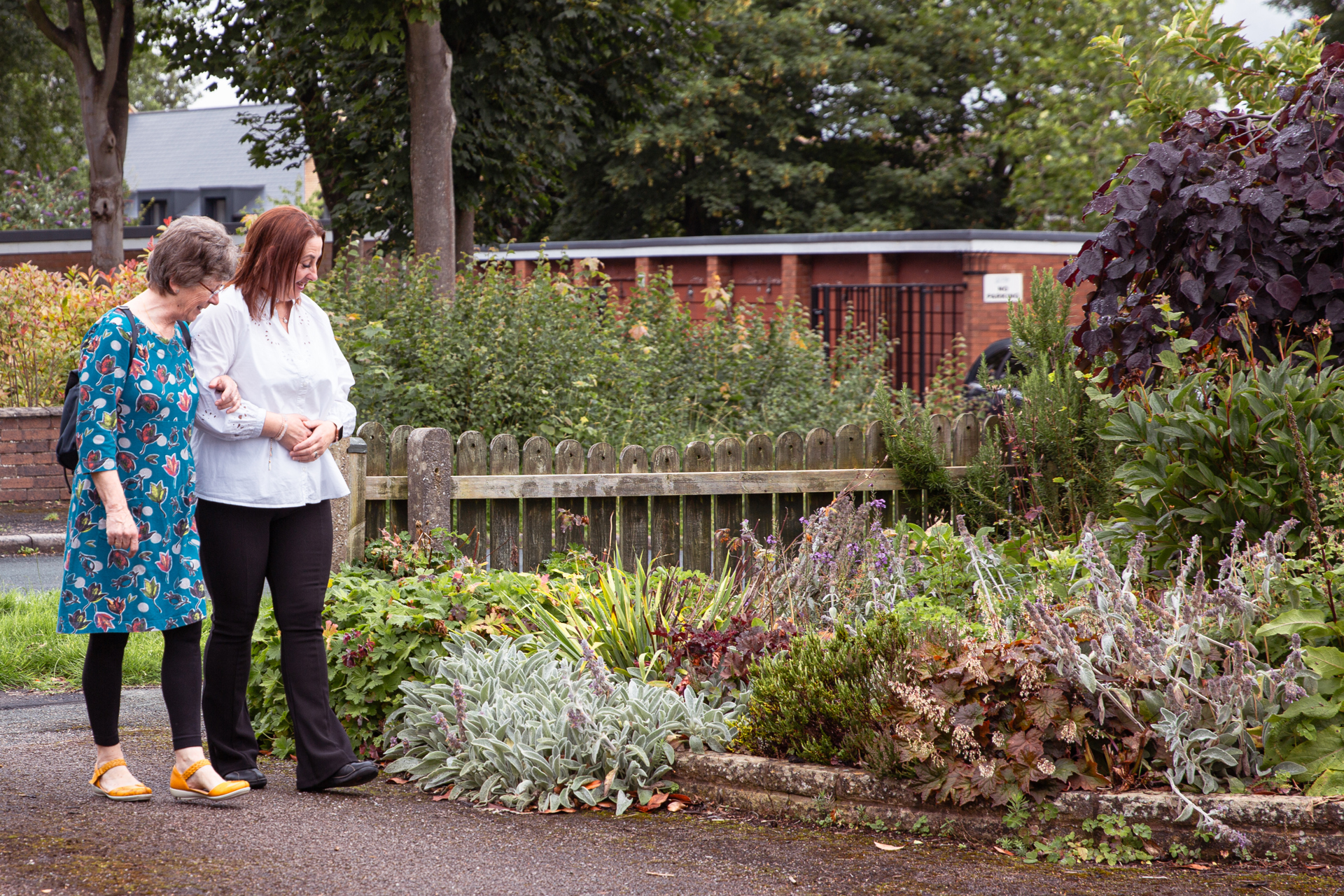The Importance of Empathy in Homecare

Published: 04/12/2023
Introduction:
In 1995 Daniel Goleman published a book introducing us to the concept of emotional intelligence. The idea- that our ability to understand and manage emotions significantly increases our chances of success is important, especially in our world of work and care work.
Ultimately, in the care arena, we need to use emotions to help and support others, and in the process create deeper and more meaningful relationships to the benefit of both parties.
Importance for Care:
Emotional intelligence is defined as ‘the ability to monitor one’s own and others’ feelings and emotions, to discriminate among them and use the information to guide ones thinking and actions.’ Clearly, it’s not just knowledge about emotions and how they work; it’s an individual’s ability to apply that knowledge to manage their own relationships with others, to attain a desired result- to make emotions work for you, instead of against you.
Therefore, if we can really step into the shoes of somebody else, the people we support, we are able to leverage those insights to better manage and develop those relationships; relationships based on our Values of trust, quality, compassion and care.
The Abilities:
Its helpful to break emotional intelligence (EQ) into four stages: self-awareness, self-management, social awareness, and relationship management.
Self-awareness is the ability to understand your own emotions and how they affect you.
Self-management is the ability to manage emotions in a way that helps you achieve a goal or provide a benefit.
Social awareness is the ability to accurately perceive the feelings of others and how these feelings influence behaviour.
Relationship management is the ability to get the most out of your connections with others, for both parties.
Social Awareness and Empathy:
Today, lets focus on the third stage of emotional Intelligence, Social Awareness because it matters most to us in the care sector.
Empathy is located in this third stage and is defined as the ability to understand and share the thoughts or feelings of another- getting to know our clients to better understand their perspective. As we meet clients and endeavour to build effective relationships, it helps to put ourselves in their shoes to gain insights, especially insights into their pain points.
We practice empathy, initially, by asking ourselves four questions i.e., what is the client thinking, what is the client saying, what is the client feeling, what is the client doing? Thereafter, empowered with these insights, we move beyond understanding to act, to help and support however we can.
It requires a combination of skills, including good listening and the use of imagination. Therefore, we spend significant time and effort on our own employee selection process to ensure that we employ Caregivers who either have these skills or have the potential to develop these skills, and that is why we have had zero staff turnover in this Business, and very high client satisfaction scores.
Empathy and Beyond:
Showing empathy takes time and effort, but from our experience in the Care Sector, we know it’s an investment that builds strong connections with both Caregivers and Clients and brings out the best in others.
Empathy is invaluable in our work, it makes us more understanding, more agile, and a joy to be around. The ability to share the feelings of others is undoubtedly a gift which enriches us as we learn to experience the world through the eyes of others. Our commitment to developing people in this Business means that daily, weekly, monthly, we strive to build this important capability. It is a continuous process of learning, and then taking action.
Conclusion:
Developing emotional intelligence (EQ) and having empathy enables us to build social connections. To feel connected to others is hugely important for our and others optimal wellbeing. It is the very basis of human relationships and helps us to feel valued, loved, and cared for. Being connected to others is good for our mental wellbeing, and therefore it matters.
If you are caring for someone or know someone who is vulnerable/lives alone, please put yourself in their shoes, and join us in showing empathy to build long-term relationships that ensure person-centred care of the highest quality.
If you’d like information on Right at Home Exeter and Exmouth and the homecare services we offer, please get in touch with us on 01392 574 323.

